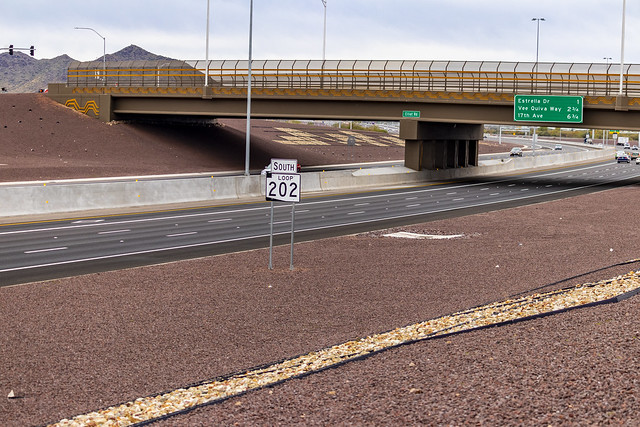
by Matthew Holloway | Sep 20, 2025 | News
By Matthew Holloway |
Arizona AG Kris Mayes’ Communications Director Richie Taylor deleted his X, Bluesky, and LinkedIn accounts after screenshots of his alleged posts surfaced on “groypers” and “violence on the right.”
Corey A. DeAngelis, a Senior Advisor with Americans For Fair Treatment, shared a screenshot allegedly taken from Taylor’s X account, which read, “Lots of people learning about groyper’s tonight because of violence on the right in this country.”
The post appeared to advance the unsubstantiated theory that Charlie Kirk’s assassin, Tyler Robinson, is a member of online commentator Nick Fuentes’ fan base, known as “groypers,” who have rhetorically feuded with Kirk and Turning Point USA over the years.
As reported by the Associated Press, Utah County Attorney Jeff Gray revealed Tuesday that evidence, including a text confession and a note, shows the suspect targeted Charlie Kirk, stating, “I had enough of his hatred. Some hate can’t be negotiated out,” and “I had the opportunity to take out Charlie Kirk and I’m going to take it.”
The comments would seem to preclude the assassin from views that could be “on the right,” as Taylor’s alleged post suggested. Gray declined to address whether Kirk was targeted due to his views on transgenderism on Tuesday, telling reporters, “That is for a jury to decide.”
Last month, Taylor came under public scrutiny for “vicious ad hominem attacks” against Jenny Clark, founder of Love Your School, a nonprofit that advocates for parental rights, school choice, and resources for Empowerment Scholarship Accounts (ESA) and special education students.
Following the incident, Clark posted an update saying, “Update: the Head of Communications for @AZAGMayes, @richietaylor – has deleted posts against me which were extremely aggressive, untrue, unprovoked and vicious ad hominem attacks. I make policy arguments supported by available facts, they prefer to personally attack people.”
Matthew Holloway is a senior reporter for AZ Free News. Follow him on X for his latest stories, or email tips to Matthew@azfreenews.com.

by Staff Reporter | Sep 20, 2025 | Education, News
By Staff Reporter |
Community members are questioning delays in Deer Valley Unified School District (DVUSD) releases of public records.
Tiffany Hawkins, a former board candidate and parent in the district, reported DVUSD “buried” about 3,000 emails in a public records request. Hawkins accused DVUSD officials of doing so to hide staff usage of school resources and time for electioneering.
DVUSD officials have previously faced accusations by parents of electioneering on school grounds. DVUSD Superintendent Curtis Finch was accused of doing so by placing political flyers on cars at school football games.
DVUSD is currently up for a budget override on the ballot this November. The 15 percent maintenance and operations (M&O) will cover approximately nine percent of all salaries, maintain maximum class sizes, pay for support services staff like counselors and nurses, and continue certain student programs such as free full-day kindergarten. This election is mail-in only.
Reporting from the Arizona Auditor General found that DVUSD spends more money on administrative costs in comparison to peer districts, ranking it as “high,” and noted that transportation spending per mile and per rider was “very high.” The report also noted that enrollments have declined steadily.
The auditor general also noted that the average teacher salary was over $2,000 less than the state average — even with the average teachers having over 12 years of experience. The district did apply its additional state monies intended to increase teacher salaries by 20 percent from the 2017 base fiscal year, which raised salaries by 35 percent.
Finch has blamed the state’s school choice program for their financial woes, manifesting as teachers struggling to come up with the funds for basic school supplies.
“Arizona has the most unusual (education) system in the nation. We have zero accountability,” said Finch in an interview with 12 News last week.
Hawkins also alleged that DVUSD denied 41 percent of her public records requests, along with withholding about 37,000 pages.
Arizona Women of Action (AZWOA), an affiliate of Hawkins, reported additional issues with public records requests being fulfilled in an untimely and incomplete manner.
AZWOA reported missing over 142,000 pages, collectively across multiple requests, and delays in responses taking anywhere from 100 to over 300 days.
DVUSD governing board member Kimberly Fisher said she has experienced “many games played” concerning public records retrieval. Fisher alleged “most” others wouldn’t speak up for “fear” of Superintendent Curtis Finch and his wife.
“Some excess redaction, some missing that suddenly show up, some taking over a year to receive, some they made me come in and scan myself if I wanted to see them only to find they already had them electronically,” said Fisher.
Hawkins said she filed a complaint alleging “discrimination and retaliation.” The board dismissed the complaint.
Earlier this year, parents expressed concerns with DVUSD compliance with President Donald Trump’s orders to end Diversity, Equity, and Inclusion (DEI) teachings and programs.
AZ Free News is your #1 source for Arizona news and politics. You can send us news tips using this link.

by Staff Reporter | Sep 19, 2025 | News
By Staff Reporter |
A Pima County Sheriff’s office deputy was placed on leave with pay after making threats to President Donald Trump on social media.
Deputy Ramon Hernandez made the threats following the assassination of conservative leader Charlie Kirk last week.
Hernandez called for Trump’s assassination, celebrated Kirk’s assassination, and called for revolution in multiple posts.
“Death to pedophile rapist Trump,” posted Hernandez, sharing a video depicting news coverage of pro-Palestinian protesters interrupting a Trump dinner in Washington, D.C.
“Death to Israel, death to pedo-Trump,” said Hernandez, sharing a post describing Israel’s recent bombing of Doha, Qatar.
“[Trump is a] piece of shit human. REVOLUTION,” posted Hernandez, in response to news of a court allowing Trump to defund Planned Parenthood pending case review of Medicaid funding.
“Feel bad for his kids, then again, they’re probably better off,” said Hernandez, sharing posts from Kirk that criticized Islam and Gaza.
“For the past 2 years I’ve been watching children’s bodies snipped and shredded to bits by U.S. bombs and Israel pushing the button….. And here we are feeling empathy for Charlie who only promoted hate, racism and was all for the annihilation of the Palestinians. Ironically Charlie didn’t believe in ‘empathy.’ We are well past the red line in this country. A pedophile rapist for a president, the military initiated for no real reason against its own citizens, ICE abducting anyone of color….. We are long overdue for a revolution. As for poor Charlie, that’s his own karma that got him where he now lays. Stand on the right side of history, especially if you’re a cop. Cops for Palestine.”
Hernandez called for the “tak[ing] out” of Israel Prime Minister Benjamin Netanyahu.
The Secret Service launched a criminal investigation into Hernandez.
Sheriff Chris Nanos said in a video statement that they were concerned about Hernandez’s posts, which he said were “alleged to be inappropriate.” Nanos said they would open their own investigation pending the outcome of the federal investigation.
“We have been notified by several citizens, as well as the Secret Service. The Secret Service is conducting a criminal investigation as we speak, and we are cooperating fully. To that point, we have protocols that are governed by law and by policy,” said Nanos. “To be clear, this sheriff and this department does not and will never condone violence of any kind. We hold our team to a higher standard: a level of professionalism that’s above all. We expect the best out of our team at all times, 24/7, not just during their eight-hour day.”
A Secret Service spokesperson told KJZZ that they couldn’t comment on active investigations.
“We take all threats against our protectees seriously,” stated the spokesperson. “As a matter of practice, we do not comment on matters involving protective intelligence.”
Earlier this summer, Hernandez was featured in the news as a protester against Trump’s immigration policies. Hernandez carried a Palestinian flag.
“Standing up for Indigenous people, decolonization is the main thing,” said Hernandez. “If we’re able to liberate Palestine, we’re able to liberate the world.”
AZ Free News is your #1 source for Arizona news and politics. You can send us news tips using this link.

by Matthew Holloway | Sep 19, 2025 | News
By Matthew Holloway |
Arizona Senate President Warren Petersen will propose legislation in the upcoming legislative session to rename State Route 202 the “Charlie Kirk Memorial Loop 202” in honor of the slain Turning Point USA co-founder.
The new legislative session, beginning on January 12, 2026, will open with Petersen’s legislation being introduced to rename the Loop 202 freeway that encircles the southern and eastern areas of the Valley, where Turning Point USA’s Phoenix headquarters is located.
“Wednesday, September 10, 2025, will forever be noted in history as a dark day where evil in its truest form was on full display,” Senate President Petersen said in a Tuesday press release. “Charlie Kirk was assassinated in cold blood by a cowardly terrorist and was targeted for his influence. But we must press forward. While Charlie Kirk cannot be replaced, this effort can make sure his legacy lives on.”
“We all have a role to play in carrying on Charlie’s legacy,” said Petersen. “Through God’s grace, by renaming this highway, we can ensure that his name, his mission, and his witness to the gospel will endure for generations to come. Even in the midst of sorrow, God’s Word reminds us that hope endures. Renaming this highway is a small step toward honoring Charlie’s immense contribution, but it is also a call for each of us to press on in faith, to live courageously for Jesus, and to stand firm in the principles Charlie so boldly championed.”
Speaking with KTAR host Mike Broomhead on Wednesday, Petersen addressed the possibility of political pushback to the legislation. Broomhead asked, “Do you believe that there will be immense support for this? I anticipate that there’s going to be some push back Mr. President. There are going to be some people that say that this is controversial. But do you think it will pass? And where will it be?”
Petersen replied, “Yeah. Of course, it’ll take, it’ll have to go through the legislature; it’ll need to be signed. I think it can be, and it should be. I mean, we have a portion of the freeway named the Ed Pastor freeway, and I don’t agree with Mr. Pastor politically, but I respect what he did for his constituents and some of the positive things he did for Arizona.
“And so, I mean, there’s no doubt Charlie Kirk, you know, he has all these admirable things that he has done and he pushed for and fought on values. And so, it should be improved. I think it will definitely pass the legislature. And I think we have a really great chance the Governor will sign it. Now, of course, all this will happen next year, as it won’t be able to happen until we’ve started the session. But there’s a lot things in the legislature that, you know, even if they don’t pass the first year, they do pass eventually. And I feel like this is something that needs to be done.”
Matthew Holloway is a senior reporter for AZ Free News. Follow him on X for his latest stories, or email tips to Matthew@azfreenews.com.

by Matthew Holloway | Sep 19, 2025 | News
By Matthew Holloway |
Last week, Congressman Abe Hamadeh joined his fellow Republicans in passing the FY26 National Defense Authorization Act (NDAA) with a bipartisan vote of 231-196 in the U.S. House of Representatives.
The landmark legislation delivers critical support for Arizona’s military communities, service members, and defense industry. Hamadeh’s vote reflects his commitment to strengthening national security and prioritizing the needs of his constituents in Arizona’s 8th Congressional District.
“I am proud of the work we have done on the FY26 National Defense Authorization Act to support military families through a pay raise, restore America’s fighting forces, and secure our border,” said Congressman Hamadeh. “This legislation will get our service members what they need, when they need it, while supporting America’s manufacturers and workers.”
In a post to X, Hamadeh’s office wrote, “Congressman Hamadeh understands that Border Security is National Security, which is why he supports the FY26 NDAA to secure America’s borders. This means it fully funds the deployment of troops to the border and authorizes nearly $1 billion to combat drug traffickers.”
The FY26 NDAA, shaped through bipartisan collaboration, streamlines military procurement processes, delivering over $20 billion in savings while ensuring critical investments in Arizona’s military installations and defense innovation. Congressman Hamadeh’s leadership secured several key provisions that directly benefit Arizona’s service members, military bases, and defense industry.
Hamadeh’s office emphasized the key wins for Arizona in the FY26 NDAA. They highlighted two provisions impacting Luke Air Force Base in particular. The first is a provision requiring the Secretary of the Air Force to produce a detailed report on the operational impacts, workforce demands, and costs before any downgrade of leadership at major bases like Luke Air Force Base. This will ensure the base, a critical hub for training and operations, retains its one-star general leadership. The second provision addresses HVAC issues at the West Valley Air Force Base.
In broader moves for his district, Hamadeh worked with Rep. Don Davis (D-NC) to secure a provision eliminating burdensome regulations that required license holders to “babysit” machine guns during fitment and testing. This change will save Arizona’s defense industry, particularly in Congressional District 8, significant costs while boosting efficiency.
Hamadeh added additional provisions as well to invest in cutting-edge gyroscopes produced in Congressional District 8, enhancing intelligence, surveillance, and reconnaissance satellite imagery, fast-tracking the customization of jet engine production in Phoenix for use in collaborative combat aircraft, and increasing the acquisition of dump trucks for the Arizona Army National Guard.
Working in bipartisan cooperation alongside Reps. Andy Biggs (R-AZ-05) and Greg Stanton (D-AZ-04), Hamadeh also secured an order for three additional conversions of AH-64D to AH-64E Apache helicopters, saving jobs at Mesa’s remanufactured Apache production line, which had been at risk of shutting down. In collaboration with Sen. Mark Kelly (D-AZ), Hamadeh included a provision requiring the Secretary of Defense to report on suicide prevention resources under The Brandon Act, named after Congressional District 8 service member Brandon Caserta, who tragically died by suicide.
Hamadeh emphasized the collaborative nature of the NDAA, stating, “I am grateful to my colleagues for their bipartisan support of Arizona’s military installations and innovators.”
Matthew Holloway is a senior reporter for AZ Free News. Follow him on X for his latest stories, or email tips to Matthew@azfreenews.com.

by Ethan Faverino | Sep 18, 2025 | News
By Ethan Faverino |
The Arizona Free Enterprise Club escalated its call for accountability, urging the County Attorneys of Mohave, Pinal, and Yuma Counties to launch investigations into Arizona State University (ASU) leadership for allegedly manipulating 2022 gubernatorial debate rules to favor Democratic Katie Hobbs over Republican Kari Lake.
The action follows a complaint filed by the Club in August 2025, with the Arizona Attorney General and Maricopa County Attorney, which was dismissed without a thorough review, prompting a broader push for enforcement under state law.
In a sharply worded letter addressed to the Mohave County Attorney Matt Smith, Pinal County Attorney Brad Miller, and Yuma County Attorney Karolyn Kaczorowski, Club President Scot Mussi detailed evidence of ASU’s deviation from established debate protocols, accusing university officials of using public resources to influence the election in violation of A.R.S. § 15-1633.
The statute states: “A person acting on behalf of a university or a person who aids another person acting on behalf of a university shall not spend or use university resources for the purpose of influencing the outcomes of elections or to advocate support for or opposition to pending or proposed legislation.”
This call-to-action stems from a September 2022 debate co-sponsored by ASU, Arizona PBS, and the Citizens Clean Elections Commission (CCEC).
Under longstanding CCEC regulations (Ariz. Admin. Code § R2-20-107(K)), a candidate declining an invitation to debate their political opponent forfeits airtime, granting the attending opponent a 30-minute solo interview.
When Hobbs announced she would skip the debate, ASU and PBS bypassed set regulations, granting her an exclusive 30-minute interview, a first in years to do so.
Internal communications, obtained and reported by the Arizona Republic, exposed the intent behind the decision. ASU President Michael Crow, Chief of Staff James O’Brien, and ASU Media Enterprise Managing Director Mi-Ai Parrish allegedly prioritized Hobbs’ comfort over neutrality.
Parrish’s emails to O’Brien highlighted concerns that “Katie is getting roasted hard” for dodging the debate and pressed CCEC staff to limit Lake’s discussion of election integrity, arguing that airing “a person with those views was wrong.” CCEC Executive Director Tom Collins confirmed to the Republic that Parrish sought to suppress Lake’s platform.
Correction: A previous version of this story incorrectly listed the names of the County Attorneys. They have now been corrected.
Ethan Faverino is a reporter for AZ Free News. You can send him news tips using this link.






